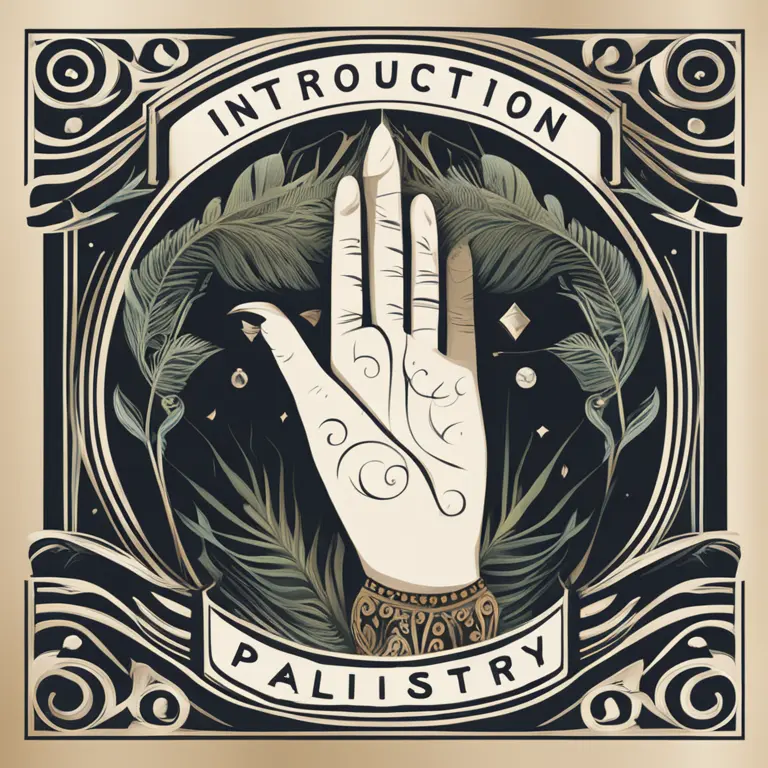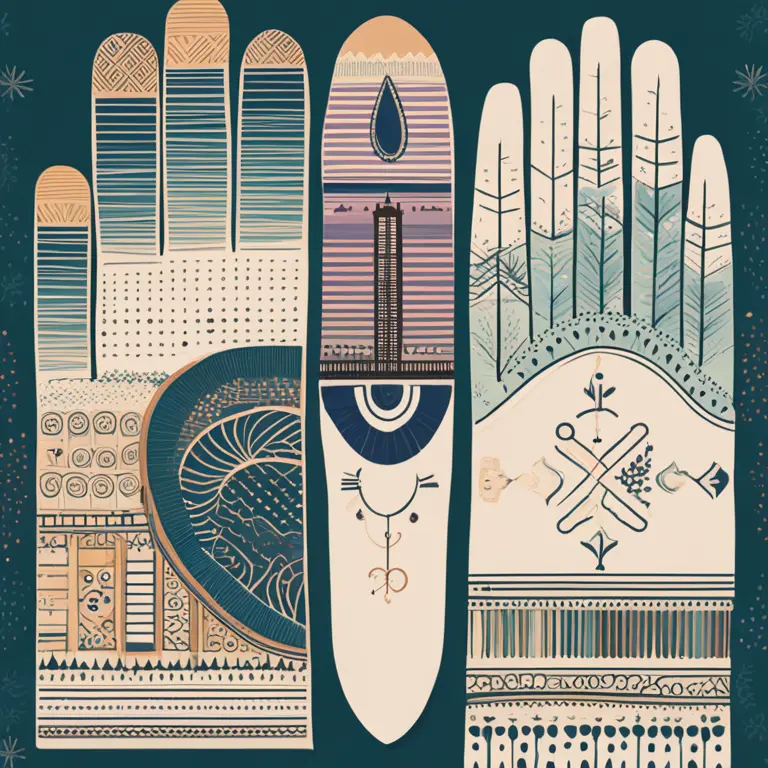
Palmistry Guide: Which Hand for Women's Readings?
Discover the nuances of female palmistry readings and learn about the differences between the dominant and receptive hands in this insightful article.
article by Nora Pennington
Introduction to Female Palmistry
Palmistry, also known as chiromancy, has been a source of fascination and insight for centuries, offering a glimpse into an individual's personality, life path, and even future events. In the realm of palm reading for females, a common question posed is: "Which hand should be read?" Traditional palmistry suggests various approaches to this question, hinging on the concepts of a dominant active hand and a passive receptive hand. The tradition is rich with symbolism and there has been a renewed interest in its practices, with more people seeking ancient wisdom in the modern era. Let's delve deeper into the significance of each hand in palmistry for women.

Understanding the Right Hand
In palmistry, the right hand is typically considered the dominant hand for right-handed individuals. It represents the present and the future, and it is often more reflective of the conscious mind. For female palmistry, the right hand may reveal the efforts a woman is making towards her future, her external interactions, and how she presents herself to the world. If you’re looking for insights on achievements, social status or public life, the lines and marks on the right hand hold valuable clues to a woman's self-made fortunes and unfolding journey.

The Enigma of the Left Hand
Contrary to the right hand, the left hand is often considered the receptive or passive hand. This tradition holds especially true for right-handed individuals, as the left hand is less active. For females, the left hand can reveal inherited traits, the inner self, or one’s potential. This hand is thought to carry the imprints of the pre-destined or familial influences one is born with, including traits passed down through generations. For those seeking insights into a woman's personal relationships, emotional landscape, and the subconscious mind, the left hand provides profound symbolism and depth.

When Left-Handedness Comes into Play
The interpretation of hands can shift with left-handed individuals. In such cases, the dominant hand for a left-handed woman would be her left hand, with the right hand revealing passive traits. This switch can influence readings as the focus on conscious and subconscious influences are inverted. Nonetheless, the core principles of evaluating the qualities presented by each hand remains consistent, regardless of whether it is the left or right that is considered her active hand.

Cultural Variations and Modern Takes
Various cultures have added their nuances to palmistry traditions, and these differences can influence readings. In certain Eastern practices, there is an emphasis on always reading the right hand for women irrespective of their dominant hand. However, contemporary palmists have been advocating for a more integrative approach that considers using both hands for a comprehensive view. The analysis of both the right and left hands is becoming a common practice in modern palmistry, accounting for the complexities of an individual's life story and personal growth.
Reading Beyond the Lines
While the lines on the palms, such as the heart line, the head line, and the life line, are central to palmistry, other aspects of the hands are equally telling. In female palm readings, the shape of the hands, the mounts, and even the fingernails provide additional insights. The texture of the skin, flexibility of the fingers, and the depth of the lines all contribute to a nuanced reading, painting a more vibrant picture of the woman's experiences, health, and tendencies.
Embarking on a Palmistry Journey
Whether you're new to palmistry or a seasoned seeker of its wisdom, approaching it with an open mind and respect for the practice can offer a richly rewarding experience. Remember that palmistry is an art and a science, and each hand reading can unfold new layers of understanding. Embrace the insights and self-discoveries that come from the ancient tradition of palmistry, and let the hands be a guide to a deeper awareness of the self.
Published: 1/11/2024
Modified: 1/12/2024
More predictions
Come back here soon to learn more about yourself and your future


The Possibility of Palmistry in Cancer Detection
Examining the claims that palmistry holds any potential in identifying the risk of cancer: a deep dive into the world of mysticism and medicine.


The Efficacy of Palmistry: Real Insight or Fancy?
Delve into the validity of palmistry as a form of divination. Is there a truth behind the lines on our palms, or is it just a charming fancy?


Palmistry Basics: How to Read Your Hand's Secrets
Learn the basics of palmistry with this guide on how to read the lines and shapes of your hands to reveal insights about your personality and future.